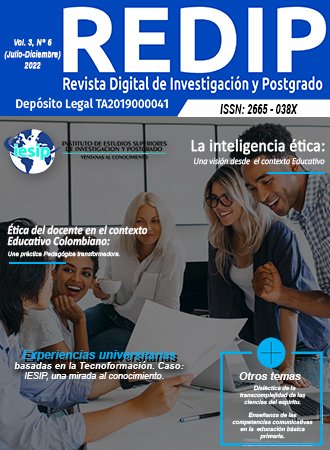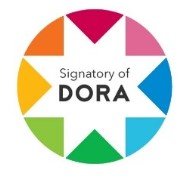The ethical intelligence
A vision from the educational context
DOI:
https://doi.org/10.59654/9pb4qg65Keywords:
Ethical intelligence, education, transepistemology, transcomplexity.Abstract
Any epistemological reflection on the ethical reason for knowledge constitutes a particular intellectual challenge for the academic field, especially for the realms of human intelligence from the ontology of educational processes and the transcomplex perspective, seen as a transepistemology under construction. that generates new epistemic positions. In this epistemic sphere, the present scientific work obeys the documentary approach, of descriptive scope, which is drawn as cardinal teleology, reflecting on ethical intelligence in the educational context, on the complementarity between thought and behavior, but also between conviction and human actions: the teacher must shine from honesty, intellectuality and spirituality, thus, from the thread of virtue of ethics, he is able to face anti values, the death of the spirit and broaden the horizons of education.
Downloads
References
Arias, F. (2012). El proyecto de investigación. Episteme
Balza, A. (2021). El Eidos de la Ontología de la Transcomplejidad Una amalgama epistémica entre pensamiento, realidad y lenguaje. Revista Digital de Investigación y Postgrado, 2(3) 17-30. https://redip.iesip.edu.ve/ojs/index.php/ redip/article/view/28.
Churcland, P. (2020). El cerebro moral. Paidós.
Escudero, C. y Cortez, L. (2018) . Técnicas y métodos cualitativos para la investigación científica. Ediciones Utmach.
Finol, T. y Nava, H. (1993). Procesos y productos de la investigación documental. Ediluz.
Gardner, H. (2000). Las inteligencias múltiples. Norma.
Juan Pablo II (1998). Carta Encíclica Fides et Radio: Sobre las relaciones entre la fe y la razón. Salesiana.
Martín, V. (2008). Ética de la ciencia. Redhecs, 5 (3), 1-8. http://ojs.urbe.edu/index.php/redhecs/article/view/51/57.
Morín, E. (2003). Introducción al Pensamiento Complejo. Editorial Gedisa.
Sabino, P. (2010). Educación subjetividad. Ediciones Buenos Aires.
Seijas, C. y Rosmaña, G. (2013). La inteligencia ética: Una herramienta orientadora en el proceso de la negociación. Revista Praxis, 9(1) 33-45. https://doi.org/10.21676/23897856.737
Stella, M. (2014). Reflexiones acerca de la ética transcompleja. Red de Investigadores de la transcomplejidad. https://es.calameo.com/books/0046341447dd1cd89db9a.
Stemberg, R. (1985). La teoría triárquica de la inteligencia: comprender el autogobierno mental. Paidós.
Gómez, L. (2012). Ética y valores: Enfoques por competencias. McGraw Hill.
Vera, L. (2015). La Investigación Cualitativa. Universidad Interamericana de Puerto Rico. Recinto de Ponce.
Downloads
Published
Issue
Section
License
Copyright (c) 2022 Revista Digital de Investigación y Postgrado

This work is licensed under a Creative Commons Attribution-NonCommercial-ShareAlike 4.0 International License.
Esta licencia permite a los reutilizadores distribuir, remezclar, adaptar y desarrollar el material en cualquier medio o formato únicamente con fines no comerciales, y solo siempre que se atribuya al creador. Si remezclas, adaptas o construyes sobre el material, debes licenciar el material modificado bajo términos idénticos. CC BY-NC-SA incluye los siguientes elementos:
![]() POR: se debe dar crédito al creador.
POR: se debe dar crédito al creador.![]() NC: Sólo se permiten usos no comerciales de la obra.
NC: Sólo se permiten usos no comerciales de la obra.![]() SA: Las adaptaciones deben compartirse en los mismos términos.
SA: Las adaptaciones deben compartirse en los mismos términos.











